Moisturizers form a barrier on the skin, locking in moisture and making it softer. Hydrators absorb moisture from air or skin to keep it trapped. Both do similar jobs but have different effects.
You might think hydration is something that only people with dry or dehydrated skin need to worry about.
But hydrating your skin is just like hydrating your body: Your body needs hydration to look and feel its best — and, no matter your skin type, so does your skin.
But what, exactly, is hydration? Is it the same as moisture? And with so many different products claiming to give you the hydrated skin you crave — oils and creams and gels, oh my! — how do you choose one that actually gives your skin the potent dose of moisture it needs?
Hydrator vs. moisturizer: What’s the difference?
Scientifically, moisturizer is an umbrella term for moisturizer types:
- emollients (fats and oils)
- squalene (oil)
- humectants
- occlusive
But in the world of marketing and the world in which we buy products, the terminology has gone through a makeover.
“[Hydrator and moisturizer] are marketing terms and can be defined by the brands pretty much however they want,” says Perry Romanowski, cosmetic chemist and co-founder of The Beauty Brains.
But while there’s no gold standard for what defines a hydrator and a moisturizer, for the most part, brands use these terms to differentiate how your skin gets the moisture it needs.
Is water a good moisturizer?
Water alone isn’t a strong enough ingredient to keep your skin moisturized. It’s also likely by the time you leave the bathroom, it’s evaporated away — along with your skin’s natural oils. In fact, the more you wash your skin without applying a moisturizer or hydrator, the more likely your skin will dry out.
The technical terms are occlusives, which you may see labeled as moisturizers and hydrators (humectants).
“Moisturizers … are oil-based ingredients, including occlusive agents, such as petrolatum or mineral oil, and emollients like esters and plant oils. They work by creating a seal on the surface of skin that prevents water from escaping. They also make the skin feel smoother and less dry,” says Romanowski.
“Hydrators are ingredients called humectants, such as glycerin or hyaluronic acid, that absorb water from the atmosphere or your skin and hold it in place on your skin.”
It’s important to recognize that they work very differently because what you choose can make or break your skin health. The end goal might be the same — better hydrated skin — but the game plan to get there depends on your skin type.
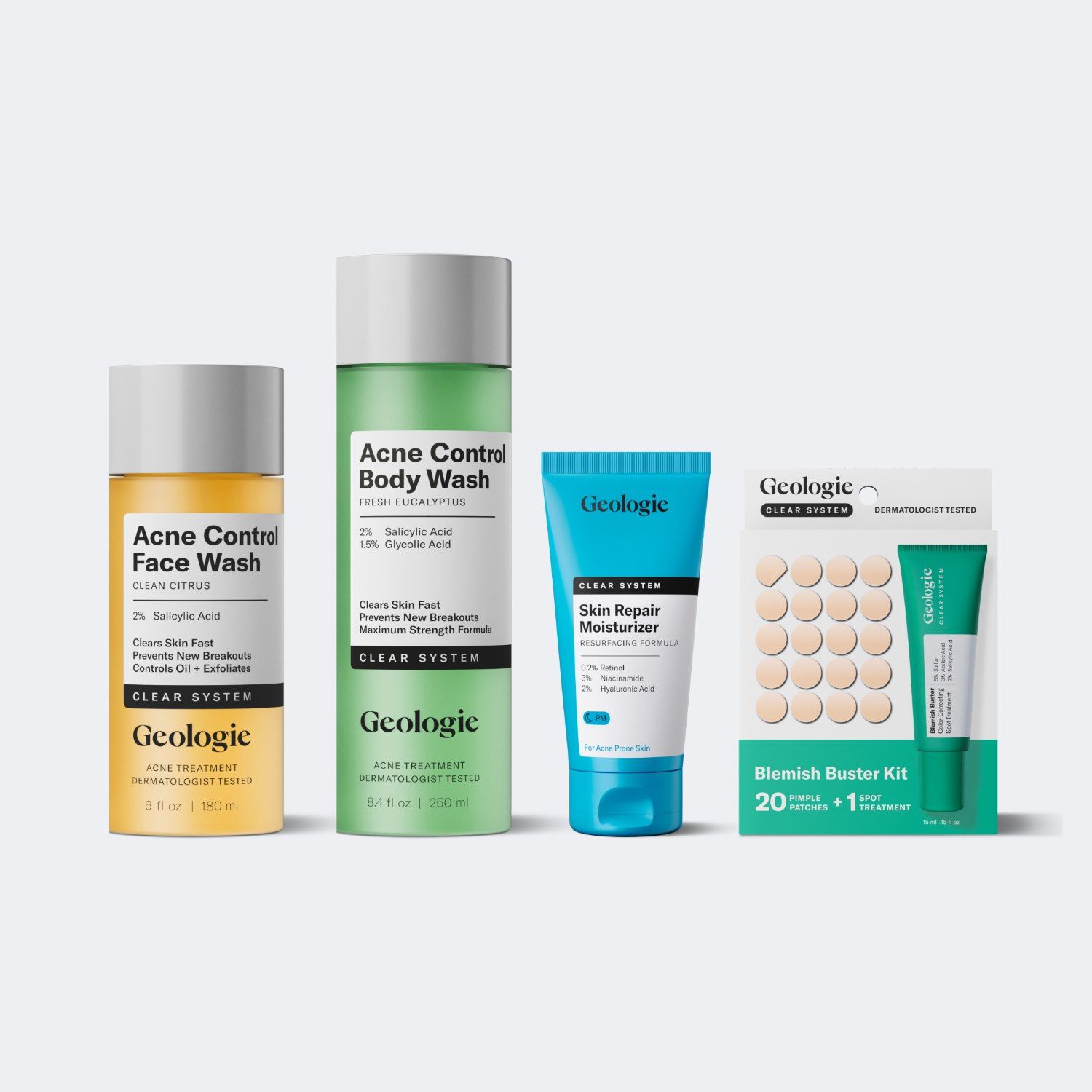
ADVERTISEMENT

Finally, acne care that feels as good as it works
Say goodbye to harsh treatments and hello to dermatologist-approved formulas that clear acne while keeping your skin soft, smooth, and naturally healthy with Geologie.
The million-dollar question: Which is best for your skin type?
There are a ton of different products on the market, from balms to oils to creams, gels to ointments to hydrators — but the truth is, most of them do the same thing.
“Most skin lotions [and products] will contain both occlusive and emollient ingredients and humectant ingredients — so they moisturize and hydrate at the same time,” says Romanowski.
“The particular form that a product takes, gel, balm, oil, cream, etc., doesn’t really affect the performance of the product. It’s the ingredients that matter. The form just affects the experience of applying the ingredients.”
That being said, read the ingredients and experiment. Sometimes your skin might do better with only a moisturizer or hydrator, not both. By learning exactly how your skin likes to drink, you maximize your way to hydrated skin.
If you have dry skin, try a thicker moisturizer
If your skin is naturally dry year-round and tends to flake or peel, chances are, it’s not weather-related dehydration that’s causing your dryness — your skin just has a hard time retaining moisture.
For that, you’ll need to moisturize to create a protective seal on the surface to lock in moisture. A thick, emollient moisturizer will help prevent water from leaving your skin and, with the right formula, will provide the nutrients and nourishment your complexion needs to thrive all winter long.
If your skin is really dry, what’s the best solution? Good, old-fashioned petroleum jelly, also known as petrolatum. “For really dry skin, occlusive agents are the best — something with petrolatum works the best,” says Romanowski.
“But if someone wants to avoid petrolatum, [then] shea butter or canola oil or soybean oil can work. In reality, petrolatum is the best, however.”
Ingredients you’ll definitely want to try: petrolatum, oils including plant oils, like jojoba oil, and nut oils, like coconut oil
If you have dehydrated skin, try a hydrating serum
If your skin is dehydrated, you need to actively add water back into the skin. Look for a hydrating serum with hyaluronic acid, which retains an impressive 1,000 times its weight in water — and will add a healthy dose of hydration back into the skin.
Ingredients you’ll definitely want to try: hyaluronic acid, aloe vera, honey
Hydrate from the inside out
- Aim to drink plenty of water. A good goal is at least half of your body weight in ounces of water every day. So, if you weigh 150 pounds, shoot for 75 ounces of water per day.
- Add water-rich foods such as watermelon, strawberries, and cucumber. These can help give your skin and body the hydration it needs to look and feel its best.
If you have oily skin, try water-based hydrators and moisturizers
Just because you have an oily skin type doesn’t mean your skin isn’t dehydrated. And if your skin is dehydrated, it can actually exacerbate your oil issues.
People with oily skin often have compromised barrier function, which makes it hard for their skin to retain moisture. As moisture leaves the skin, it becomes dehydrated, causing the skin to produce more oil.
It’s a vicious cycle, and the only way to break it is to give your skin the proper hydration and moisture it needs.
Look for water-based, non-comedogenic hydrators and moisturizers. Water-based products will feel lighter on the skin and won’t clog your pores.
But how do you know if the product will moisturize or hydrate?
So, final verdict, when it comes to keeping your skin hydrated, which is better: hydrator or moisturizer?
The answer is probably both.
As we mentioned above, it all depends on your skin type and most common creams do both. But if you’re a skin care aficionado who’s dabbling in single ingredients and 10-step routines, you could be doing it wrong.
Here’s a handy table to help determine whether you’re keeping your skin healthy with the right ingredients.
| Ingredient | Moisturizer (occlusive) or hydrator (humectant) |
|---|---|
| hyaluronic acid | hydrator |
| glycerin | hydrator |
| aloe | hydrator |
| honey | hydrator |
| nut or seed oil, such as coconut, almond, hemp | moisturizer |
| shea butter | moisturizer |
| plant oils, such as squalene, jojoba, rosehip, tea tree | moisturizer |
| snail mucin | hydrator |
| mineral oil | moisturizer |
| lanolin | moisturizer |
| lactic acid | hydrator |
| citric acid | hydrator |
| ceramide | technically neither (ceramides strengthen the skin’s barrier to help prevent moisture loss) |
It also doesn’t hurt to use both a moisturizer and hydrator. Just hydrate by applying humectants like hyaluronic acid first, then follow up with an occlusive like plant oils to lock it in.
Or, if you want to keep things simple, look for a product that does both. Face masks are a great option to get the one-two punch to hydrate and moisturize your skin with a single product.
If you want a plump, hydrated complexion year-round, the answer is never just one or the other. After all, there’ll definitely be some point, like winter, where you’ll need to hydrate and moisturize — the key is knowing when.

Deanna deBara is a freelance writer who recently made the move from sunny Los Angeles to Portland, Oregon. When she’s not obsessing over her dog, waffles, or all things Harry Potter, you can follow her journeys on Instagram.
ADVERTISEMENT
Explore Skincare Solutions
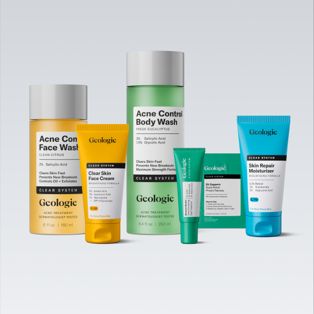
The complete clear skin solution
- Dermatologist designed for lasting results
- Treats existing breakouts and prevents new ones from forming
- Heals scarring while maintaining skin moisture balance
- Gentle enough for daily use with visible results
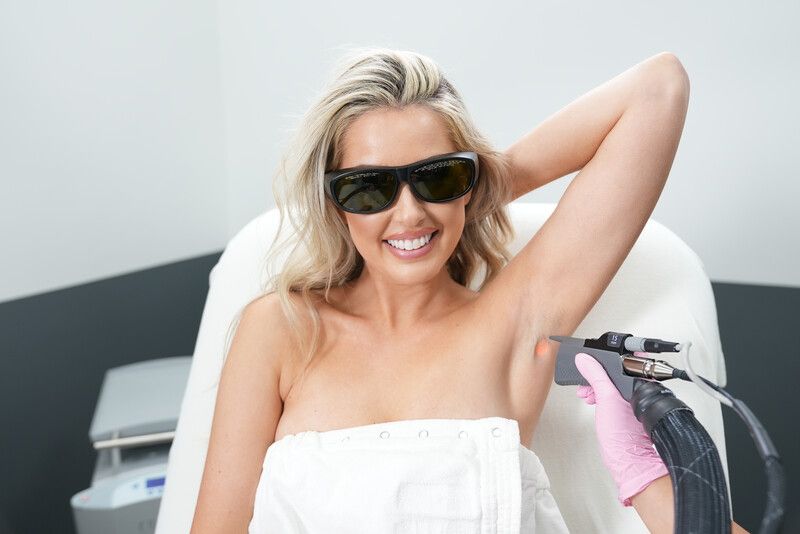
Laser Away aesthetic treatments
- Treatment plans overseen by board-certified dermatologists
- FDA-approved Botox treatments
- CoolSculpting’s that eliminates stubborn fat
- 160+ locations nationwide and 7-day availability
Your First Botox Treatment for $10 Per Unit*
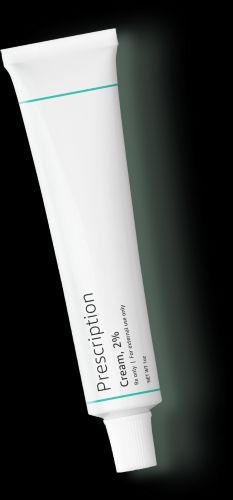
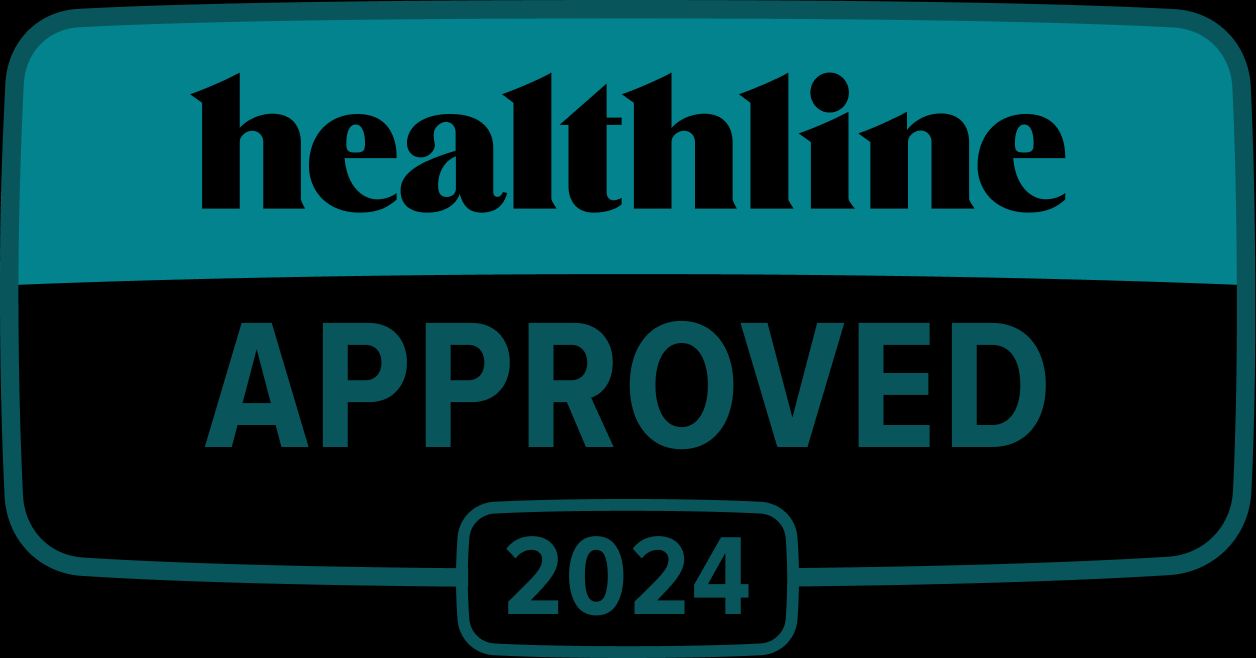
Amazon One Medical Skin Care
- Pricing starts at $10/month
- Personalized treatments for fine lines and wrinkles
- Advanced formulas to even out skin tone
- Cutting-edge technology for firmer, smoother skin
- Expert guidance for a radiant complexion
A provider will determine prescription eligibility. Pricing may vary
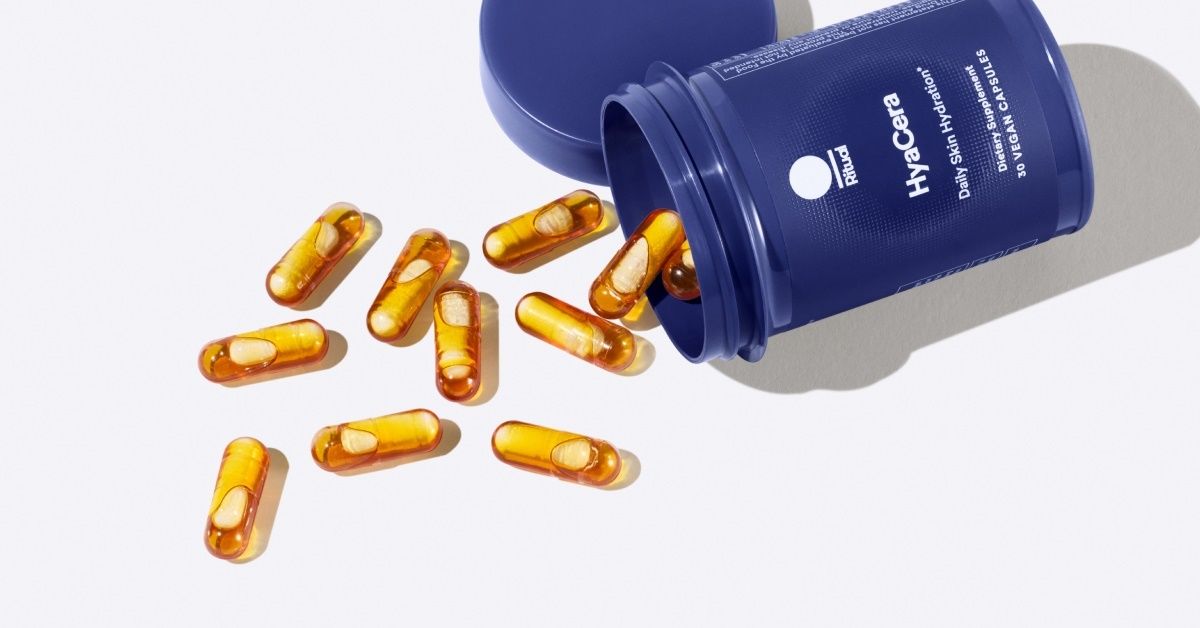
Ritual HyaCera
- One daily capsule
- Gluten and allergen free
- Clinically proven to reduce wrinkles
- 30-Day money back guarantee
Use Code “HEALTHLINE25” for 25% Off!
Last medically reviewed on April 29, 2022
How we reviewed this article:
Sources
History
Our experts continually monitor the health and wellness space, and we update our articles when new information becomes available.
Current Version
Apr 12, 2023
Written By
Deanna Debara
Edited By
John Bassham
Copy Edited By
Nastassja Myer
Apr 29, 2022
Medically Reviewed By
Cynthia Cobb, DNP, APRN
VIEW ALL HISTORY
Share this article

Medically reviewed by Cynthia Cobb, DNP, APRN, WHNP-BC, FAANP — Written by Deanna Debara — Updated on April 12, 2023
There are a few common spots where psoriasis could appear on your body. Join our psoriasis newsletter for your free infographic and expert guidance twice a week.
Enter your emailJOIN NOW
Your privacy is important to us
Was this article helpful?
8 Home Remedies for Dry Skin
- Coconut oil
- Petroleum jelly
- Oatmeal baths
- Antioxidants and omega-3s
- Gloves
- Adjust your shower temperature
- Use a humidifier
- Avoid allergens and irritants
- Prevention
You may be able to relieve dry skin by using moisturizing ingredients that support a healthy skin barrier. Including certain foods in your diet and protecting your skin from irritants may also help.
Dry skin (xerosis) is a common condition with many causes. Dry skin can be a symptom that indicates a more serious diagnosis. But in most cases, dry skin is caused by environmental factors that remove moisture from the skin.
Heat, hot showers, arid climates, and harsh soaps can all trigger dry skin. Fortunately, you can use home remedies to address dry skin symptoms and restore moisture. Read on to learn more.
1. Coconut oil
Coconut oil has emollient propertiesTrusted Source. Emollients fill the spaces between skin cells, creating a smooth surface. That’s why the saturated fatty acids that occur naturally in coconut oil can hydrate and smooth the skin.
You can use coconut oil daily on even the most sensitive parts of your body. These include the area underneath your eyes and around your mouth. Another advantage of coconut oil is that you don’t need to mix it with anything. Coconut is gentle enough for substantial everyday use.
2. Petroleum jelly
According to a studyTrusted Source, petroleum jelly products can heal skin in older adults. Petroleum jelly, also known as mineral oil, covers the skin in a protective layer. It traps moisture underneath. This helps heal dry, irritated skin patches.
3. Oatmeal baths
Oatmeal is common folk remedy for irritated skin. A 2015 studyTrusted Source showed why grandmothers and great-grandmothers have been recommending this home remedy for centuries: It works.
Colloidal oatmeal has antioxidants and anti-inflammatory properties that soothe irritation. This remedy is especially effective if you’re seeking to relieve itching. After you’ve taken an oatmeal bath, make sure you moisturize your skin to lock in the barrier.
You can make an oatmeal bath at home. Use a food processor to chop oatmeal into a fine powder, then stir it into warm water. You can also try one of the many commercial products available to make an oatmeal soak.

With Bezzy Psoriasis, you’re never alone.
Join others who understand what you’re going through, and discover a safe space for community, guidance, and support to manage psoriasis symptoms together.
Real-world advice
7K+ active members
Nightly discussions

4. Antioxidants and omega-3s
When your skin is dry, it means you’re exposing it to elements that are damaging skin cells faster than your body can repair them. There are some foods that can help your skin appear healthier, according to the Mayo Clinic.
Foods rich in antioxidants can minimize damage from toxins and help your body make healthy cells. Some of the foods that contribute to skin health include:
- blueberries
- tomatoes
- carrots
- beans
- peas
- lentils
Foods rich in omega-3 fatty acids like salmon, may also contribute to a glowing-skin diet.
5. Gloves
Hands tend to experience the most direct contact with environmental irritants. These include dish soap and laundry detergent.
Get in the habit of wearing gloves when your hands are in water. Your hands also take a lot of abuse when temperatures drop and you’re working outside in the cold.
Wearing insulated gloves while doing household chores, or when you’re outside in extreme temperatures can cut down on dry, irritated skin.
6. Adjust your shower temperature
The American Academy of Dermatology notes that relieving dry skin is sometimes as simple as changing your shower routine. While most people tend to take hot showers, these can scald the skin and cause damage.
And some soaps that claim to moisturize and repair the skin can cause the opposite effect. They can trigger allergic reactions and make the skin thinner with harsh chemicals.
Take short showers with water that’s warm, not hot. And look for soaps that are fragrance-free and gentler on skin than traditional soaps.
7. Use a humidifier
Keeping a humidifier in your home can help minimize the dryness caused by home heating systems. Though gas and electric heat strip moisture from the air, a humidifier set to 60 percent is enough to offset this effect, according to the Harvard Medical School.
8. Avoid allergens and irritants
A sudden occurrence of dry skin might be connected to the clothes you’re wearing or what you’ve exposed your skin to.
Sitting by the fireplace, spending time in chlorinated or chemically-treated water, or even wearing wool clothing can all irritate your skin and make it feel dry. Check what you’re putting your skin through, and try to treat it gently.
Prevention
It’s important to preserve healthy skin. Your skin is the first line of defense against bacteria and viruses. When your skin is compromised by itching, an infection can occur. You may want to incorporate a good moisturizer into your daily routine, even when your skin isn’t bothering you.
In fact, maintaining a healthy skin barrier daily is one of the best ways to prevent outbreaks of dry skin. Another essential skincare tip is to use a moisturizing sunscreen every day to prevent skin damage and dryness.
Make sure to wear loose-fitting, cotton clothing that draws sweat away from the skin when you’re exposed to high temperatures or skin-irritating conditions.
Remember that extremely dry skin can be an indication of a more serious condition. If home remedies aren’t helping, you may need to see a doctor to get a prescription treatment to relieve your dry skin.
Explore Skincare Solutions
The complete clear skin solution
- Dermatologist designed for lasting results
- Treats existing breakouts and prevents new ones from forming
- Heals scarring while maintaining skin moisture balance
- Gentle enough for daily use with visible results

Laser Away aesthetic treatments
- Treatment plans overseen by board-certified dermatologists
- FDA-approved Botox treatments
- CoolSculpting’s that eliminates stubborn fat
- 160+ locations nationwide and 7-day availability
Your First Botox Treatment for $10 Per Unit*
Amazon One Medical Skin Care
- Pricing starts at $10/month
- Personalized treatments for fine lines and wrinkles
- Advanced formulas to even out skin tone
- Cutting-edge technology for firmer, smoother skin
- Expert guidance for a radiant complexion
A provider will determine prescription eligibility. Pricing may vary

Ritual HyaCera
- One daily capsule
- Gluten and allergen free
- Clinically proven to reduce wrinkles
- 30-Day money back guarantee
Use Code “HEALTHLINE25” for 25% Off!
Last medically reviewed on September 14, 2018
How we reviewed this article:
Sources
History
Our experts continually monitor the health and wellness space, and we update our articles when new information becomes available.
Current Version
Apr 18, 2023
Written By
Sarah Taylor, M.D., FAAD
Edited By
Elizabeth Donovan
Sep 14, 2018
Medically Reviewed By
Debra Rose Wilson, PhD, MSN, RN, IBCLC, AHN-BC, CHT
Share this article

Medically reviewed by Debra Rose Wilson, Ph.D., MSN, R.N., IBCLC, AHN-BC, CHT — Written by Sarah Taylor, M.D., FAAD — Updated on April 18, 2023
